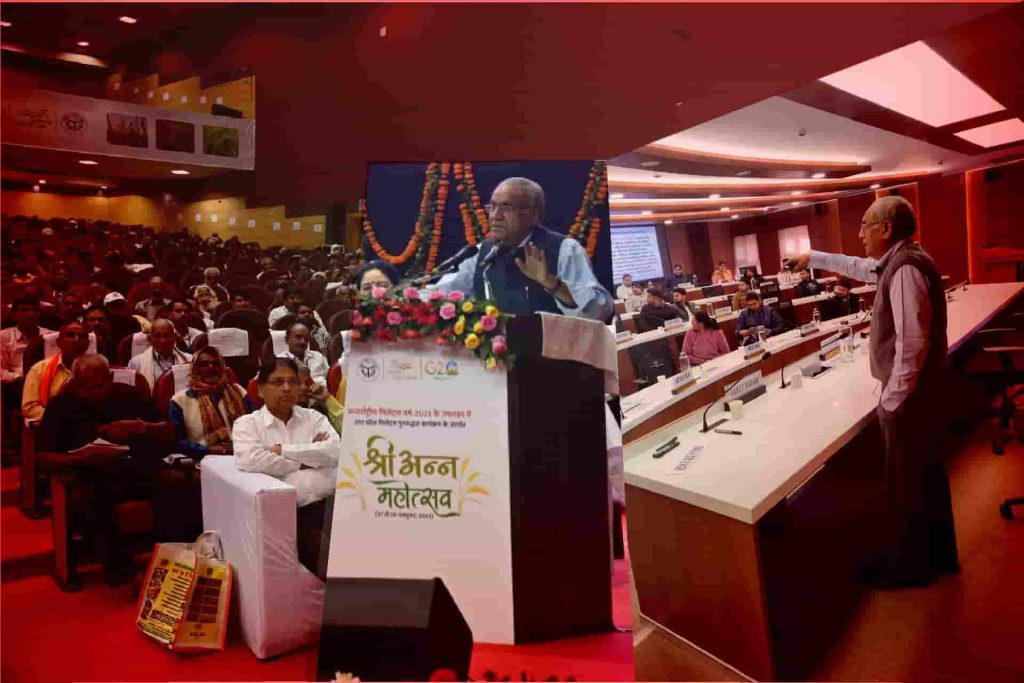Expectations from Budget 2021
Despite lots of constraints people have many expectations from the finance minister Mrs Nirmala Sitharaman, set to present budget 2021in parliament on Monday. An analysis by Prof Dr. R D Mishra.
Although nothing is certain about the budget outcome but it is normally on the guidelines of the Economic Survey report, which was released by Dr Arvind Subramanian Chief Economic Advisor to the Govt of India. According to the report “India focussed on saving lives and livelihoods by its willingness to take short-term pain for long-term gain, at the onset of the Covid-19 pandemic.”. Other salient feature is;
- The survey expects the Indian economy to grow by 11 per cent during 2021-22 which is close to the growth forecast of 11.5 per cent made by the International Monetary Fund (IMF). This means that the Indian GDP in 2021-22 is expected to be at 149.2 lakh crore.
- The gross tax revenue earned by the government during the period April to November 2020 fell by 12.6% to 10.26 lakh crore which can be attributed to the contraction of the economy.
- Disinvestment which was targeted at 2.1 lakh crore has only been 15,220 crore, 7.2 per cent of the targeted amount which according to the survey happened due to the coronavirus pandemic
- The fiscal deficit has also gone up and as of January 8, the union government borrowed a total of 10.72 lakh crore, 65% more than what it had borrowed in the corresponding period in the previous financial year.
- The survey points out that the economy is recovering during the second half of this year. The government consumption is expected to grow by 17%, after contracting by 3.9% during the first half. On the other hand, private consumption is expected to contract by 0.6% in the second half, after having contracted by 18.9% during the first half.
- The only sector expected to grow this year according to the survey is the agriculture sector which is expected to grow by 3.4%.
- 7. The Goods and Services Tax (GST) collections have also increased in the second half of the year as the monthly GST collections in December 2020 stood at ₹1.15 lakh crore.
- 8. Bank credit growth as of January 1 stood at 6.7%. Since September 2019, bank credit growth has been in the single digits.
Given the situation, it is expected that there will be shortfall between earning and expenditure and it will be difficult job before Smt Nirmala Sitharaman , Finance Minister to satisfy the demand and expectations of all segment of society. Anyway, people from middle class do not expect any relief in the Income tax bracket, rather it is expected that rich strata people may be levied some extra taxes to recover the monetary gap, but following expectations are always there, which are as such;
- Increase in basic income tax exemption limit and investment limit under section 80C.
The basic income tax exemption limit needs to be increased from Rs 2.5 lakh to Rs 5 lakh. The immediate expectation is to reduce the tax burden of taxpayers. The Covid-19 pandemic has affected everyone in some way or the other. Increasing the basic exemption limit will provide tax respite to individuals, increase liquidity, and give a boost to the economy.
- Increasing section 80D limit for individuals
With the Covid-19 pandemic hitting hard and medical insurance coverage found to be inadequate for families, deduction for mediclaim coverage for non-senior citizens should be increased from Rs 25,000 to Rs 50,000 and for senior citizens from Rs 50,000 to Rs 75,000. - Deduction for remote working set-up
Covid-19 pandemic brought about a paradigm shift in work culture. Work-from-home (WFH) has become a necessity. Budget 2021 should introduce measures which would provide certain tax benefits for employees. For example, a standard deduction of Rs 50,000 from gross income could be provided (over and above the existing standard deduction from salary) to allow for expenditure by employees who are working from home on ergonomic chairs/furniture, .. - Long-term capital gains on equity shares and equity mutual funds
Long term capital gains from sale of listed equity shares and equity mutual funds is tax-exempt up to Rs 1 lakh. Further, the gain above Rs 1 lakh is subjected to tax at 10% (plus applicable surcharge and cess) without benefit of indexation. The government should look at increasing the exemption limit from Rs 1 lakh to Rs 2 lakhs for retail investor - Deduction for conserving environment
With climate change being inevitable and a hot topic, incentivising use of environment-friendly products such as solar heaters, solar lamps, wind energy, bio-toilets, solar mobile chargers, etc. by individuals and households has also become necessary. Just as the government incentivised purchase of electric vehicles by providing a deduction under section 80EEB of the Act for interest paid up to Rs 1.5 lakh on loans taken, the GOI may cons - Financial Provision for Pending Real Estate Projects. During Nov 2019 Govt released Rs 25000/- Cr as distressed fund to relive/Complete halted Real state projects, which were not sufficient for this huge sector which is the second largest employer which was badly hit due to Demonetisation. Coming abudget should have at least RS 50,000/- Cr allocation.
- Tax exception for Senior Citizen should be Rs 10 lakh and exempltion on interest earned should be Rs 2.Lakh
- Special provision should be for Health and Education Sector to achieve 5 Trillion Economy toward “Atmanirbhar Bharat” by 2024.
Total expenditure in budget 2020-21 is expected to be Rs 30,42,230 crore, which is 12.7% higher than the revised estimate of 2019-20. Now we have to wait for Pandora’s Box to open for Common citizens of India. However it has also to ensure that it does not breach 5 to 5.2 per cent of fiscal deficit next FY as against the expected fiscal deficit of 6.5 to 7 per cent this FY.
Dr.R.D.Mishra,
Director, Greater Noida Productivity Council
Frm Director & Head, National Productivity Council, GOI


